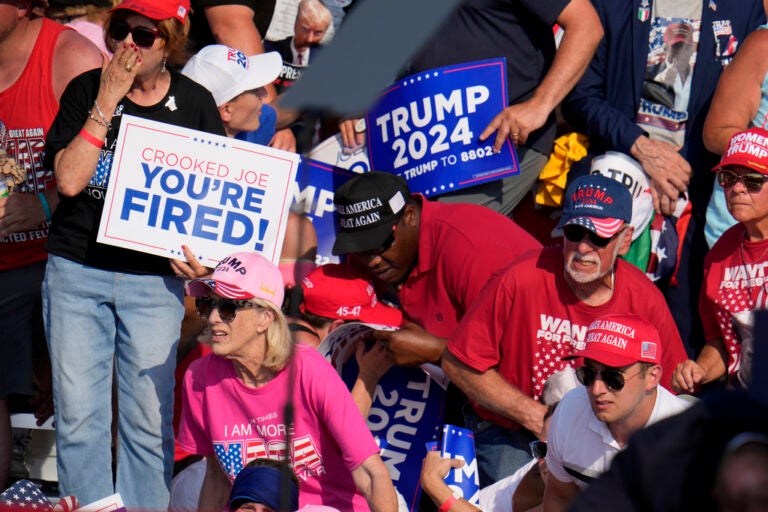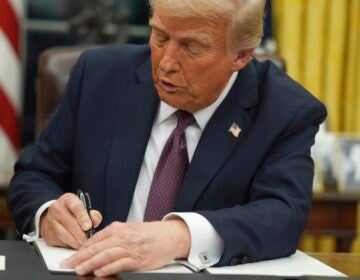Did you entertain conspiracy theories after the Trump assassination attempt?
Since the attempted assassination of former President Trump, conspiracy theories have been circulating about what happened. Why do we fall victim to this outlandish thinking?
Listen 51:45
Members of the crowd react as U.S. Secret Service agents surround Republican presidential candidate former President Donald Trump at a campaign event in Butler, Pa., on Saturday, July 13, 2024. (AP Photo/Gene J. Puskar)
Since the attempted assassination of former President Trump, conspiracy theories have been running rampant, fueled by the constant stream of speculation on social media. In a time where information is readily available at our fingertips, it can be easy to get caught up in outlandish thinking. But why do we fall victim to these theories? Perhaps it is due to a desire for answers and explanations in uncertain times, or a need to feel like we have inside knowledge that others do not. Have you ever found yourself believing in conspiracy theories before? We talk with University of Delaware professor Dannagal G. Young and Brendan Nyhan, professor of government at Dartmouth College.
WHYY is your source for fact-based, in-depth journalism and information. As a nonprofit organization, we rely on financial support from readers like you. Please give today.






